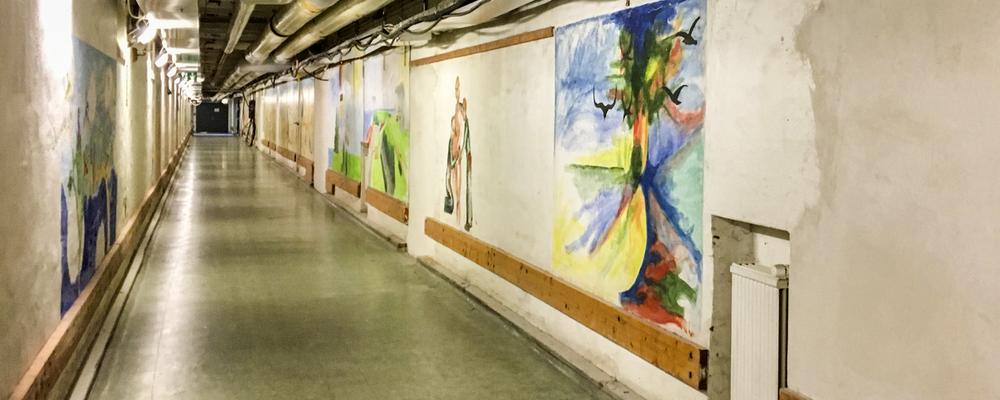
Conference: The Material and Immaterial Heritage of Psychiatry - June 2019
AN INTERDISCIPLINARY CONFERENCE 11-12 June 2019 University of Gothenburg Keynote speakers Hans-Peter Söder (University of Munich, Germany) China Mills (University of Sheffield, UK)
Call for papers
Psychiatry has been imbued with controversies since its birth as a discipline. Over the past decades, biomedical perspectives have become domineering, framing psychiatry as a science disconnected from contextual and cultural values and practices. The mainstream narrative represents the idea of constant progress, with previous psychiatric care being depicted as inhumane and unscientific, while current practices are considered to be humane, effective, and scientific. Emphasizing oppressive historical practices serves to justify current practices and might contribute to the occlusion of ongoing injustice. Throughout history, there have certainly been oppressive and inhumane interventions; there have, however, also been empathic and holistic perspectives and approaches, underlining the importance of wellbeing, meaning making and belonging, but these tend to be excluded from the dominant narrative.
In general, there is a tendency to disregard the heritage of psychiatry and mental health care both in material and immaterial terms. Its buildings are frequently deconstructed or rebuilt as business parks, SPA facilities or residential areas, and the traces of their past are thus obliterated. Important questions arising are: Whose narratives become neglected or silenced in this process? Whose narratives are perceived as important to preserve? Who is given the authority to speak ‘truth’ about the history and heritage of psychiatry and mental health care? The neglect of considering and preserving the narratives of, for instance, the patients and those challenging the dominant discourse at any given point in time, might be expressive of a sense of guilt for the oppressive practices that have taken and are still taking place. It might also be connected to ideas of progress, as though we live in an era of scientific breakthroughs with no need to either look back or look sideways, or to efforts to deflect attention from the overwhelming suffering experienced by clients.
Acknowledgment of psychiatry’s immaterial and material heritage might broaden the perspectives on its history as well as on current and future practices. We need to consider which parts of psychiatry’s heritage should be acknowledged and preserved. What current practices are remnants of oppressive historical practices and perspectives? We also need to consider how questions of heritage might provide possibilities to formulate criticism and provide alternatives, for example through activism, user movements, visual art, handicraft, or creative writing, and also how creative expressions contribute to wellbeing and recovery and to scholarly and clinical insight. What can we learn from prior practices and activities and how are they integrated (explicitly or implicitly) in today’s psychiatry? Moreover, historical and current alternatives to mainstream psychiatry might be specifically important for minority ethnic groups and migrants, who alongside women, LGBTQ people and people with socioeconomic difficulties often have been oppressed through established diagnostic procedures and treatment interventions. And they still are.
We welcome papers from scholars in critical psychiatry/psychology/social work/occupational therapy, cultural studies, critical heritage studies, gender studies, philosophy, literature, architecture, history, religion, visual arts, history of ideas, psychoanalysis and other disciplines. Papers could, for example, concern psychiatry’s benevolent heritage, such as the use of expressive arts and crafts, the role of women and minority populations, or how the material heritage of psychiatry, including its buildings, could inform prior and current understanding of mental distress. Papers are however not limited to these topics.
The conference is financed by the Center for Critical Heritage Studies (University of Gothenburg) and organised by Elisabeth Punzi (Gothenburg, Department of Psychology and Centre for Critical Heritage Studies), Christoph Singer (Paderborn, Department of English), Nika Söderlund (Gothenburg, Department of Social work), Cornelia Wächter, (Bochum, Department of English), and Frida Wikström (Gothenburg, Department of Historical Studies).
Please send 300-400-word abstracts for 20-minute papers to Elisabeth Punzi (elisabeth.punzi@psy.gu.se), Nika Söderlund (nika.soderlund@socwork.gu.se) and Frida Wikström (frida.wikstrom@gu.se) by 30 November 2018.
There will be no conference fee.
The Conference is arranged by
Centre for Critical Heritage Studies, UGOT, Sweden
Ruhr Universität Bochum, Germany
Universität Paderborn, Germany
Program and dates
The conference The Material and Immaterial Heritage of Psychiatry. An Interdisciplinary Conference takes place at the Department of Historical Studies, Eklandagatan 86, University of Gothenburg, Gothenburg, Sweden, 11-12 June 2019.